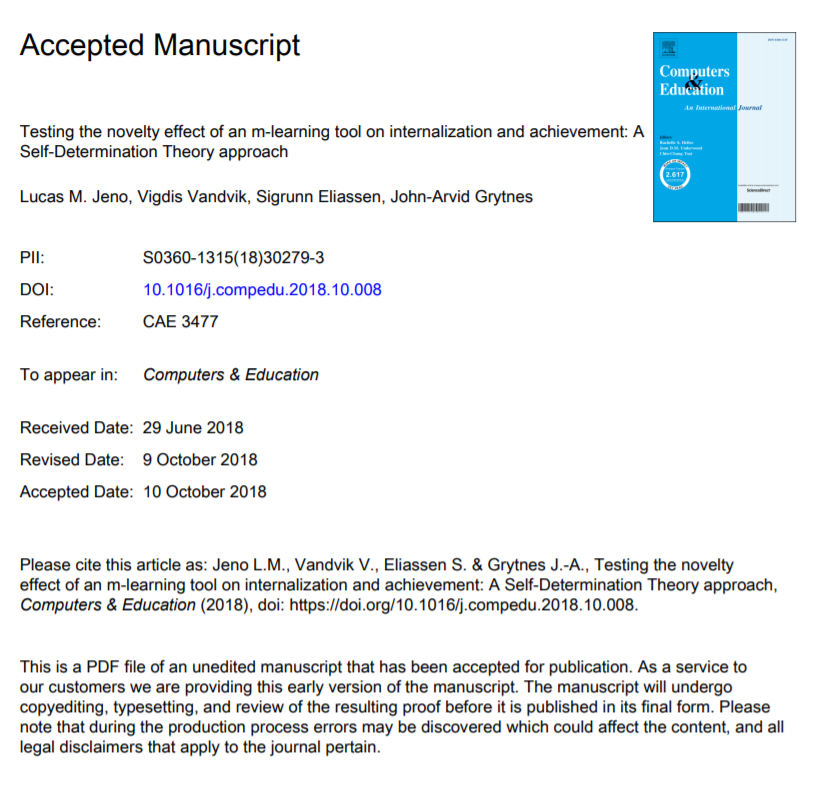Lucas Jeno, Vigdis Vandvik, Sigrunn Eliassen, John-Arvid Grytnes from bioCEED and BIO have recently published the article “Testing the novelty effect of an m-learning tool on internalization and achievement: A Self-Determination Theory approach.”
Perceived novelty in mobile applications is an inevitable aspect of today’s technologies. Studies suggest that this perceived novelty effect increases motivation but wanes once the user becomes accustomed to the product. Using a Self-Determination Theory approach, the present study investigates how different tools relate to students’ motivation, basic psychological needs, and achievement, over and above the effect of perceived novelty. The results from a randomized controlled experiment show that a mobile-learning tool and a digital version of a textbook are perceived as more novel than a traditional textbook. However, only the mobile-learning tool enhances the students’ basic psychological needs. Additionally, using path-analysis, we find that the mobile-learning tool, need-satisfaction within the mobile-learning tool, and autonomous motivation account for achievement and internalization, over and above the effect of novelty. We argue that this finding is due to the inherent need-supportive elements within the mobile-learning tool that satisfy the basic psychological needs.
Reference and link to the article
Jeno L.M., Vandvik V., Eliassen S. & Grytnes J.-A., Testing the novelty effect of an m-learning tool on internalization and achievement: A Self-Determination Theory approach,
Computers & Education (2018), doi: https://doi.org/10.1016/j.compedu.2018.10.008
About the author

